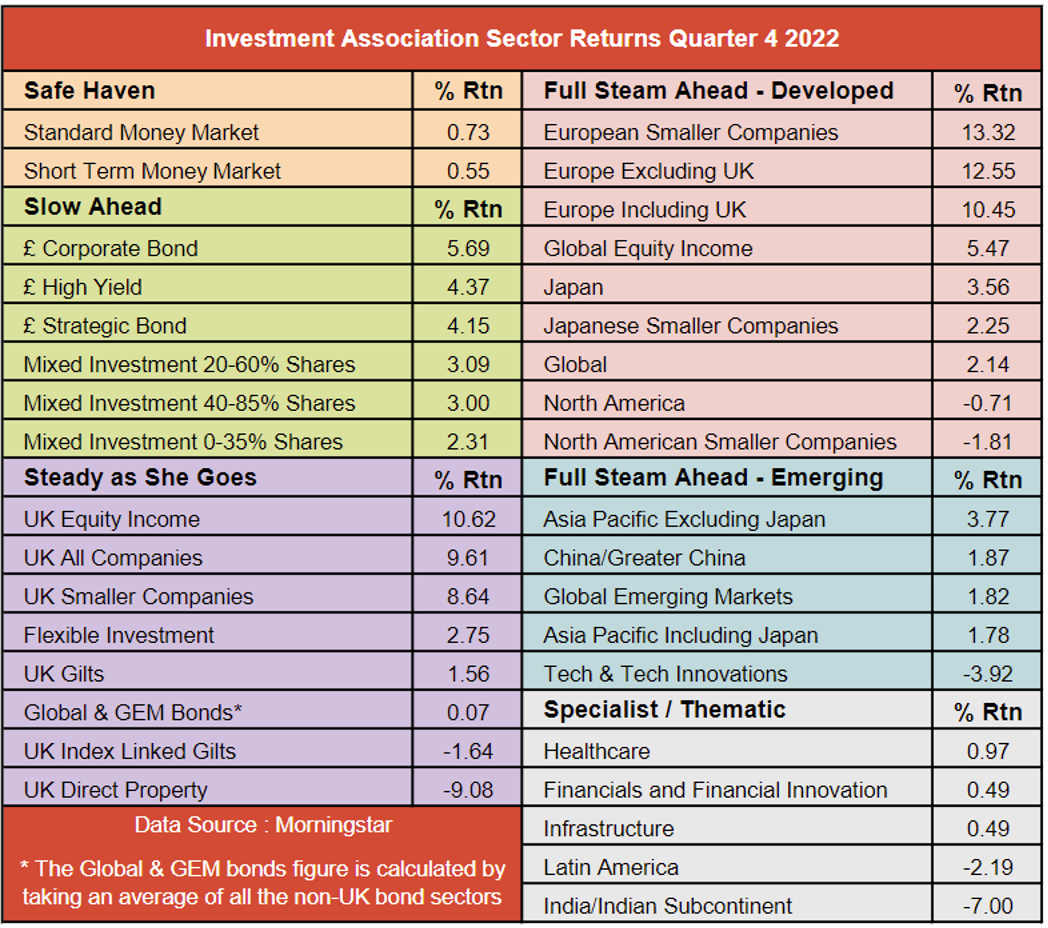The two UK equity income funds we’ve bought
16th January 2023 13:58
by Douglas Chadwick from ii contributor
UK funds have had a good start to 2023, which has prompted Saltydog to take action.

This content is provided by Saltydog Investor. It is a third-party supplier and not part of interactive investor. It is provided for information only and does not constitute a personal recommendation.
The UK’s FTSE 100 fared better than most in 2022. It ended the year up 0.9%, when most indices went down, and since then has gained more than 5%.
- Invest with ii: Top ISA Funds | FTSE Tracker Funds | Open a Stocks & Shares ISA
The FTSE 100 is unusual in that although it is made up of the leading companies on the London Stock Exchange, it is not particularly representative of our domestic economy. It is made up of large international companies that trade all over the world. It also has relatively little in the way of technology stocks, with a greater emphasis on energy, commodities, finance, and consumer staples.
The FTSE 250, which is more closely aligned to what is happening in the UK, didn’t have such a great year, falling by nearly 20%.
Funds investing in UK equities fall into three of the Investment Association (IA) sectors: UK Equity Income (funds principally targeting income), UK All Companies (funds with a primary objective of achieving capital growth), and UK Smaller Companies (funds investing in the companies which form the bottom 10% by market capitalisation).
- Fund ideas and areas of concern for income investors in 2023
- Listen to our latest podcast episode: the investment trends to watch in 2023
All three sectors went down last year. UK Equity Income did the best, but still fell by 2.2%. Then it was UK All Companies, which lost 9.2%, and finally UK Smaller Companies, which dropped by an eye-watering 25.6%.
However, there were signs of improvement towards the end of the year. Having made losses in the first three quarters of the year, the three UK equity sectors went up in October and November. Although they dropped a little in December, they all ended up posting positive returns in the fourth quarter.

UK funds did not do quite as well as the European sectors, which I wrote about last week, but they did enough to deserve a place in our demonstration portfolios.
We are still holding the Baillie Gifford UK Equity Alpha, JPM UK Smaller Companies, and Janus Henderson UK Smaller Companies funds, which we bought in November. They are all showing gains, as is the MI Chelverton UK Equity Income fund that we added at the beginning of December.
The UK equity sectors have had a good start to 2023 and when we reviewed our numbers last week the UK Equity Income funds were showing an average four-week return of 3.2%. UK All Companies was up 2.8% and UK Smaller Companies was up 2.3%.
We decided to increase our exposure to the UK Equity Income sector.
In our Ocean Liner portfolio we added to the MI Chelverton UK Equity Income fund, but in the Tugboat we added the BNY Mellon UK Income fund, which featured in both our four-week and 26-week shortlists.

Past performance is not a guide to future performance.
Last week, the FTSE 100 hit a four-year high and it is well on its way to setting an all-time record. If that trend continues, I would expect these funds to do well.
For more information about Saltydog, or to take the two-month free trial, go to www.saltydoginvestor.com
These articles are provided for information purposes only. Occasionally, an opinion about whether to buy or sell a specific investment may be provided by third parties. The content is not intended to be a personal recommendation to buy or sell any financial instrument or product, or to adopt any investment strategy as it is not provided based on an assessment of your investing knowledge and experience, your financial situation or your investment objectives. The value of your investments, and the income derived from them, may go down as well as up. You may not get back all the money that you invest. The investments referred to in this article may not be suitable for all investors, and if in doubt, an investor should seek advice from a qualified investment adviser.
Full performance can be found on the company or index summary page on the interactive investor website. Simply click on the company's or index name highlighted in the article.